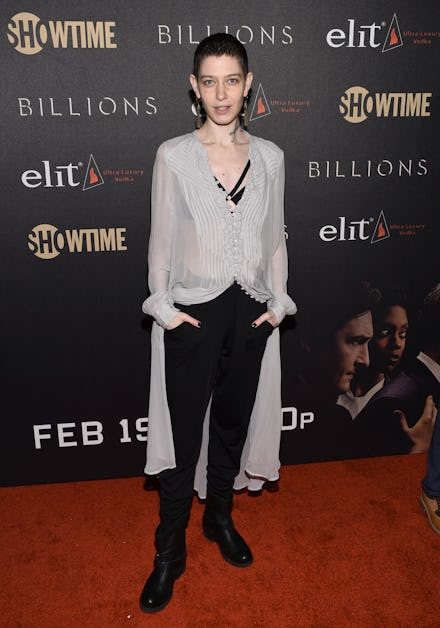Gendered awards categories are problematic. Combining them isn't a perfect solution.

In the same week, two different awards bodies were faced with an interesting question: What is the purpose of splitting acting categories into male and female races? It's a tradition to split performance awards at everything from the Oscars to the Emmys to the newly reimagined MTV Movie and TV Awards by both gender and whether the performance is for a lead or supporting role.
The question, simply put, is why do these distinctions exist? There are indeed a lot of problems with distinguishing performance by gender or even assigned sex, especially in a time where cultural conversations about gender and sex are becoming increasingly open and inclusive. But one awards body's solution to the problem — to eliminate the classification altogether — reveals why this is an issue with no quick fix.
Asia Kate Dillon, a nonbinary actor from Showtime's Billions, raised the point in a letter to the Television Academy, the body that hands out Emmy Awards. Their point was, in essence, that the distinction seems at best unnecessary and at worst exclusionary. From their letter, via Variety:
I'd like to know if in your eyes 'actor' and 'actress' denote anatomy or identity and why it is necessary to denote either in the first place? The reason I'm hoping to engage you in a conversation about this is because if the categories of 'actor' and 'actress' are in fact supposed to represent 'best performance by a person who identifies as a woman' and 'best performance by a person who identifies as a man' then there is no room for my identity within that award system binary. Furthermore, if the categories of 'actor' and 'actress' are meant to denote assigned sex I ask, respectfully, why is that necessary?
The Television Academy's quick response, which Dillon characterized as "100% supportive," was that any performer is free to submit in whatever category they wish. "The Academy supports anyone's choice to do that, and the Academy is not going to do any sort of check," Dillon told Variety.
Dillon wound up submitting in the actor category, because they found that to be a more gender-neutral label. While they found the dialogue with the Television Academy to be smart and productive, they also indicated the conversation was far from over. "I think this is a really good place to start a larger conversation about the categories themselves, and what changes are possible and what may or may not be coming," Dillon told Variety.
Coincidentally, the MTV Movie and TV Awards announced their nominees Thursday, complete with gender-non-specific acting categories. The result is batches of nominees that include Hugh Jackman, Hailee Steinfeld and Emma Watson all competing in the same race for best movie actor, for instance.
For an awards body that curates its nominees carefully, the move is a smart one. They can make sure the categories are still balanced while remaining as inclusive as possible. However, that's hardly a one-size-fits-all solution.
Take the Oscars, for instance. As of 2016, the Academy of Motion Picture Arts and Sciences was 76% male. To eliminate gender classification there would leave picking 10 nominees of any gender identification to a group of voters that are overwhelmingly male. While one could argue men don't automatically vote for other men, the historically male lineups in the non-gender-specific Oscar categories would prove that to be false. It is a statistically provable fact that, given no gender instruction, Oscar voters prefer voting for men.
Not only that, but noteworthy roles for women in movies remain underdeveloped, with too few and far between. Men get the meatier roles, and thus can make stronger arguments for awards attention. The academy could try to counter this by adding a specific number of male and female performers each member needs to nominate — but that's literally just putting a new name on what we have now. A coat of polish isn't going to fix a systemic problem.
It's a difficult question: How do you change awards categories to be more inclusive of people who do not identify within the gender binary without running the risk of non-male performers being excluded entirely? The truth is that each awards group is likely going to have to take this on a case-by-case basis, at least for the time being. The Television Academy's response to Dillon's inquiry was smart, progressive and productive. MTV realized they had a unique opportunity and ran with it. Neither of their solutions would work so seamlessly with the Oscars or Golden Globes, to say the least.
This is, as Dillon noted, an ongoing dialogue that will require broad, out-of-the-box thinking. There are solutions — answers that make awards more welcoming to all. They'll just take some time to develop.